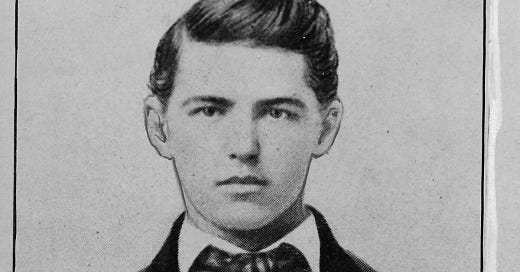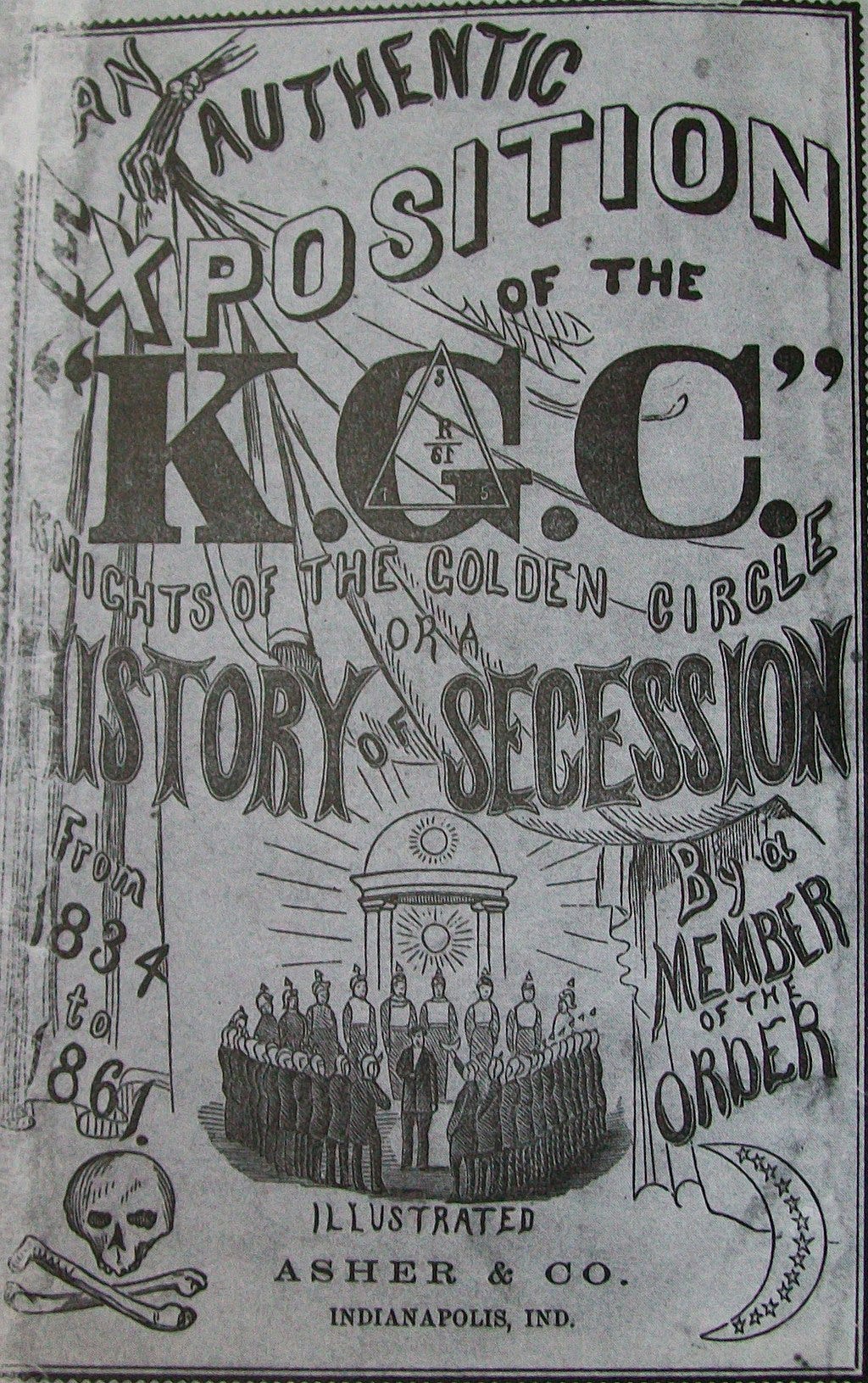Chapter 28 - Asbury Harpending and the Knights of the Golden Circle
Before and during the Civil War, powerful Southern forces (including the ruthless Senator William Gwin from Mississippi, elected to “represent” California) were working to turn California into a slave state. When the war started, San Francisco business leaders and citizens were just becoming aware of the danger posed by the secretive Knights of the Golden Circle: secessionists in California who sought Confederate control over California and her wealth.
“With the city of San Francisco and her impregnable fortifications in Southern hands, the outward flow of gold, on which the Union cause will depend in a large measure, would cease—as a stream of water is shut off by turning a faucet.”
The following chapter detailing the initiation ceremony of the Knights of the Golden Circle is largely taken from Southern secessionist and convicted traitor Asbury Harpending’s autobiography: The Great Diamond Hoax and Other Stirring Incidents in the Life of Asbury Harpending. Full book available at Project Gutenberg.
Read After the Gold Rush from the beginning:
Chapter 28
January 1861: San Francisco, California
Asbury Harpending (age 22)
I was told to be at the house of a well-known Southern sympathizer at 9 o’clock in the evening.
It was well apart from other buildings, with entrances in several directions. The gentleman who owned it lived alone, with only Asiatic attendants, who understood little English and cared less for what was going on. A soft-footed domestic opened the door, took my card, and presently I was ushered into a large room where a number of gentlemen, most of them young but well established, were seated at a long table. I recognized among them leading men of San Francisco of various walks of life.
The spokesman, a great man of affairs, called the meeting to order, and we listened, rapt, as he began his opening remarks. He began by quoting President Jefferson Davis of the new Confederate States of America:
“The South is confronted by a common foe. The South should, by the instinct of self-preservation, be united. The recent declarations of the candidate and leaders of the Black Republican Party must suffice to convince many who have formerly doubted the purpose to attack the institution of slavery in the states. The undying opposition to slavery in the United States means war upon it, where it is, not where it is not. And the time is at hand when the great battle is to be fought between the defenders of the constitutional government and the votaries of mob rule, fanaticism and anarchy!"
There was great affirmation from the assembled men.
Our spokesman went on to quote the CSA’s vice president, Alexander Stephens:
“The new constitution has put at rest, forever, all the agitating questions relating to our peculiar institution: African slavery as it exists amongst us the proper status of the negro in our form of civilization.”
Murmurs swept the room around me.
“The prevailing ideas entertained by Jefferson and most of the leading statesmen at the time of the formation of the old constitution, were that the enslavement of the African was in violation of the laws of nature; that it was wrong in principle, socially, morally, and politically.
Those ideas, however, were fundamentally wrong. They rested upon the assumption of the equality of races. Our new government is founded upon exactly the opposite ideas.”
There were numerous shouts of “Hear, hear!” from our crowd.
“Its foundations are laid, its cornerstone rests, upon the great truth that the negro is not equal to the white man; that slavery, subordination to the superior race, is his natural and normal condition. This, our new government, is the first, in the history of the world, based upon this great physical, philosophical, and moral truth.”
After the assembled men had loudly cheered the words of our new Confederate leaders, the spokesman continued.
“All through the South the election of Abraham Lincoln as President of the United States has been accepted as the signal for a civil contest. The work of organization has gone ahead with feverish haste—and long before the new President’s inauguration the authority of the Federal Government has been paralyzed in most of the slave States. Every court, every post office, every arsenal in every seceded state, all but Fort Sumter, has already been seized by the Confederacy.”
More cheers from the room, and pounding of canes on the floor. To my great surprise, the spokesman then turned to me.
“Asbury Harpending, you have been selected as one to lead in an affair of great peril, an enterprise on which the future of the South might depend. We ask you, are you ready to risk life and fortune on the turn?”
I immediately rose from my chair and answered proudly, “On my honor as a gentleman, I am!”
“Do you, in the presence of Almighty God, swear that what I may this night say to or show you shall be kept secret and sacred, and that you will not by hint, action or word reveal the same to any living being, so help you God?”
“I do so swear.”
The spokesman stepped forward with a rolled parchment which he unfurled to reveal a handwritten oath.
I stood before the others and read out the words:
“Having been brought to this room for the purpose of having a secret confided to me and believing that to divulge such secret would imperil the lives of certain Southern men as well as injure the cause of the Southern States, I do solemnly swear in the name of the Southern States, within whose limits I was born and reared, that I will never, by word, sign or deed, hint at or divulge what I may hear to-night. Not to my dearest friend, not to the wife of my bosom, will I communicate the nature of the secret. I hold myself pledged, by all I hold dear in heaven or on earth, by God and my country, by my honor as a Southern gentleman, to keep inviolate the trust reposed in me. I swear that no consideration of property or friendship shall influence my secrecy, and may I meet at the hands of those I betray, the vengeance due to a traitor, if I prove recreant to this my solemn obligation. So help me God, as I prove true.”
The spokesman gripped my hand, and turned me to face the crowd, proclaiming, “Welcome, brother, to the Band of Thirty, pledged to carry California out of the Union.”
He then lit the paper bearing the Oath, and the room watched as it burst into flame.
Read After the Gold Rush from the beginning:
Why subscribe?
After the Gold Rush is a reader-supported publication. To receive a monthly roundup of new posts and support this work, please consider becoming a free or paid subscriber.
Notes:
The above scene is mostly Asbury Harpending’s own words, from his autobiography:
The Great Diamond Hoax and Other Stirring Incidents in the Life of Asbury Harpending
Read the book on Project Gutenberg





